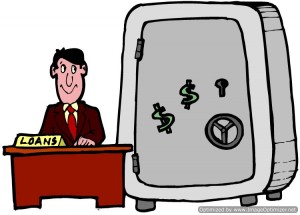If you think about it, credit card consolidation loans seems like solving a dilemma through another problem. However, it does have its pros and cons to it. You just need to know if it can really help your unique financial situation.
Are Credit Card Consolidation Loans the Right Option?
As the name suggests, this is a loan that you can take out to help pay for all your credit card debts. Instead of paying various companies at different due dates, you can actually take out a loan that can cover all of them with just one payment.
The goal here is to pay for one lower interest rate as opposed to paying several. You get to cancel the rates of the other debts by paying them off immediately. Not only that, it becomes easier to manage because you only have to track one payment every month. If you stick to your plan and you pay this loan religiously, you could be on your way to relieving yourself of your credit card problems.
However, it can get dangerous especially if you do not put a tight rein on your spending habits. Seeing that you are in this position means you are not the best spender in the world. The chances are high that you will think you have lesser financial obligations. That could lead to spending leniency that could put you in danger of getting yourself deeper into debt once more.
There are two ways to make sure this will not happen. One is talking to your lender or any financial expert to assess the new loan. Make sure it will not put your further into debt through unforeseen fees. The next is to come up with a spending and budget plan that will help you pool in your limited resources to concentrate on paying your debts. Now is the time to get a financial expert to advise you on how to accomplish this.
Another disadvantage of this loan is risking your assets. There are some consolidation loans that require collateral that will be taken in the event you are unable to pay your monthly dues. The alternative to that is getting higher interest rates – thus higher monthly payments.
It is true that this type of loan has a lower interest rate – but only for those with good credit scores. More often than not, applicants for this loan have bad credit standing. Otherwise, they should be able to manage their payments on their own.
If you intend on pursuing this path, you need to know the full scenario first. Note how much you spend every month and how much you can afford to set aside for your debts. Calculate properly to ensure that you will not end up paying for more than when you started. Once you have a clear idea of your financial capabilities, set realistic goals that will ultimately lead you to pay off your dues. Also, be prepared for a longer payment term. A lower monthly bill means longer terms and higher interest rates.
Know that there are other ways to solve your credit card troubles other than a consolidation loan. Give us a call and we can talk about the options that will work best for you. National Debt Relief exists to help you find the perfect solution through the help of our talented financial experts.

